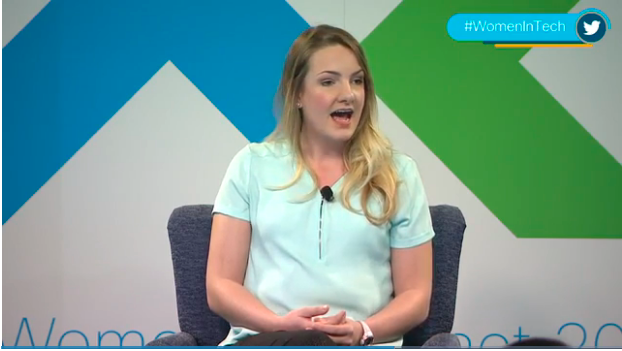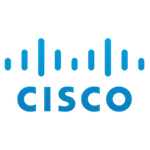An Inspiring Conversation with Global Problem Solvers
by Tae Yoo, Sr VP Corporate Affairs

Cisco Blog | Executive Platform
I recently had the opportunity to sit down with Mary Elizabeth McCulloch and Elizabeth Nyeko, two socially minded young women who exemplify the mindset of a Global Problem Solver. They joined me on stage in San Jose at the Women of Impact conference, where we spoke to more than 16,000 global attendees on a day dedicated to the advancement of professional women.
As you may remember, we set an ambitious goal in 2015 to positively impact 1 billion people with digital solutions by 2025. To reach that goal, we’re committed to accelerating global problem solving; by supporting people who innovate as technologists, think as entrepreneurs, and act as social change agents.
We specifically focus on building digital skills through the Cisco Networking Academy, supporting nonprofits that scale social impact, and empowering social entrepreneurs like Mary Elizabeth and Elizabeth to turn their innovative ideas and dreams into reality. For example, Mary Elizabeth and her team, Project Vive, were grand prize winners in our inaugural Global Problem Solver Challenge.
Through their solutions and organizations — Voz Box and Mandulis Energy — Mary Elizabeth and Elizabeth are making a positive impact on people and the planet. I’d like to share a few highlights from our conversation, and I hope you find their stories as inspiring as the many who listened during Women of Impact.
Elizabeth, tell us about your work with Mandulis Energy. What’s different about your solution?
Mandulis is an electricity company in Uganda with a unique business model – it delivers agricultural value-added services to the community’s rural farmers. Individual farmers bring us their crops – rice, corn, groundnuts – which we process into higher value products, immediately doubling their income. We then use gasification technology to turn the waste from their crops into electricity and cooking fuel.
Our goal is to deliver electricity to homes, businesses, and industries in a manner that drives sustainable economic development in the communities in which we operate. We know the business model of a utility company in Uganda can’t be the same as that of one in Copenhagen, but our focus remains on creating value for our customers.
The integrated solution leverages technology, as well as partnerships with governments and NGOs, to deliver energy security and catalyze food security, climate resilience, and economic development.
Mary Elizabeth, can you tell us about your innovation the Voz Box? What inspired you to create this?
I was an exchange student in high school and lived in Ecuador. I started volunteering in an orphanage for children and adults with disabilities. Some who had cerebral palsy were unable to speak, and I knew after working with them that I wanted to do something to help.
When I returned to the United States, I noticed similar issues. That’s when I set out to make the Voz Box, a speech-generating device that opens up opportunities for those with disabilities to communicate, connect, as well as gain access to education and employment.
Elizabeth, what are some of the ways technology allows you to scale your solution?
For us, technology is the thread that ties everything together. Our digital platform makes use of distributed ledger technologies, IoT, and artificial intelligence to address critical bottlenecks in electricity distribution in order to reconcile affordability of electricity with reliability and sustainability.
For instance, for off-grid consumers, there is typically little to no data about their power consumption patterns, which presents a significant challenge to current power distribution systems. By making use of IoT to get real-time data — and shifting from a human-driven to a machine-driven approach to power distribution — we take advantage of predictive control to make electricity distribution more energy efficient, reliable, and cost-effective.
We’ve also added a payment gateway that interfaces with the existing mobile money solutions in our market and enables our customers to pay only for the electricity that they consume.
Mary Elizabeth, what technologies are critical in making the Voz Box more affordable and customizable than other solutions?
The Voz Box blends commonly available technology like customizable sensors, open-source software, and off-the-shelf parts to create a fully-adapted, connected, low-cost speech generation system for people who cannot speak. The Voz Box isn’t just voice; it allows people to communicate, connect, and control their world through Internet access and IoT integration.
Other devices are specifically made to be speech generating devices and don’t use universal sensors for control. They often have limited options for access methods, a less intuitive interface, and lack training support — all at a higher cost.
Our goal is to make the Voz Box accessible to all, and our sensors can be placed to fit any user’s low motor control abilities, such as finger, hand, elbow, knee, foot, and eye movement. We want to democratize the access to this technology so that people with disabilities can contribute and live out their life goals.
The three of us discussed a few other topics during our time together, including their educational backgrounds, how they each ended up pursuing science and technology-focused businesses, rewards and encouragement they’ve received, as well as barriers they’ve faced along the way.
Both women mentioned funding as one of their primary barriers, and have leveraged innovation challenges to help fuel their businesses. I think challenges are a good avenue for women — who unfortunately seem to have a harder time getting initial funding — to gain the access to capital they need to get started.
As we closed out the session, we opened the floor up for Q&A, where both ladies were asked what advice they’d give to young women in the audience.
Mary Elizabeth spoke to following your dreams and not being afraid of failing, saying, “If you fail, remember you’re failing forward.” She also reminded the audience that there will always be people who just don’t get your dream or don’t see the possibilities, but to use that all as practice; practice in explaining your vision, showing the economic viability of it, and illustrating the importance of it.
Similarly, Elizabeth told the young viewers to just start — start building your dream. Entrepreneurship is a challenging path towards a future fraught with uncertainty, but the best way to face risk is to take control of your destiny.
Elizabeth said, “My father always told me to focus on my vision and passion, and I’ve found that when you focus on something you’re passionate about — and are clear about your mission — you’ll be able to define your path, navigate the worst, and build your dream.”
If you’d like to see my entire conversation with these two inspirational young ladies, please watch the recording on Cisco TV.

